The Ability to Address Big Challenges: Christina Lewellen, MBA, CAE
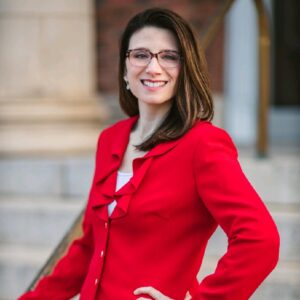
The Association of Technology Leaders in Independent Schools is only six years old, but has a strong advocate in its executive director, Christina Lewellen, MBA, CAE. Since 2019, Christina has focused on helping ATLIS serve its members – technology leadership at independent schools – through membership growth, encouraging a more inclusive and diverse professional environment for IT professionals, and initiatives to holistically support independent schools. Informed by a background as a writer, researcher, business strategist and singer, she takes a methodical approach to her work and isn’t afraid to boldly advocate for her membership.
For the past year, Christina has been helping ATLIS and its members navigate the challenges that remote work and schooling have created. This includes switching from an in-person conference to a virtual one within 30 days, and convincing sponsors to stay. Her work also includes helping independent school staffs form meaningful partnerships to impact the changing nature of education.
We caught up with her to talk about how she’s tackling these challenges head on and her expectations for our “next normal.”
Association Adviser: How did you make your way into association work?
Christina Lewellen, MBA, CAE: I started my career in Western New York as a newspaper reporter. I loved meeting people, learning about new things, and writing. When I moved to the Washington, D.C., area for personal reasons, I found a job as a television field producer, but I really missed detailed research and writing. So I took a job as a writer and later an editor for a national trade publication that was owned by an association. I had never come across association work before; I sort of fell into it through the publication side.
I loved the community of association members—many of whom were competitors—coming together to make the industry better as a whole. I was hooked. It felt meaningful. After I earned my MBA, I did a brief stint in the corporate space, but I missed the “greater good” that associations offered. I love running a business with a great strategy. I love running successful programs. But I know that I always do better when I have a mission to strive toward.
AA: What major goals do you hope ATLIS will achieve in the next 12 months?
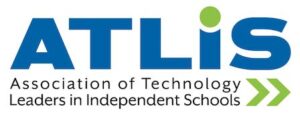 CL: ATLIS is at a really exciting phase of its development. If you think about it, there’s nothing that’s been more of a focus during this pandemic than how we transitioned our previous life to a virtual environment. At ATLIS, we represent technology leadership at independent schools. Our members helped educators move very quickly to virtual learning environments and now they’re helping administrators understand what roles technology should play longer term to achieve data-informed outcomes in education.
CL: ATLIS is at a really exciting phase of its development. If you think about it, there’s nothing that’s been more of a focus during this pandemic than how we transitioned our previous life to a virtual environment. At ATLIS, we represent technology leadership at independent schools. Our members helped educators move very quickly to virtual learning environments and now they’re helping administrators understand what roles technology should play longer term to achieve data-informed outcomes in education.
ATLIS is a relatively young organization at just 6 years old, so there are still many independent schools out there trying to figure out their technology strategies on their own. In the next 12 months, we’re putting a lot of effort into making sure these school leaders know we are here to help them come out of the pandemic stronger and protected from a technology standpoint. Our major goals focus on membership growth, fostering a diverse and inclusive environment in which technology leaders can develop, and supporting the broader independent school community as it finds its next normal.
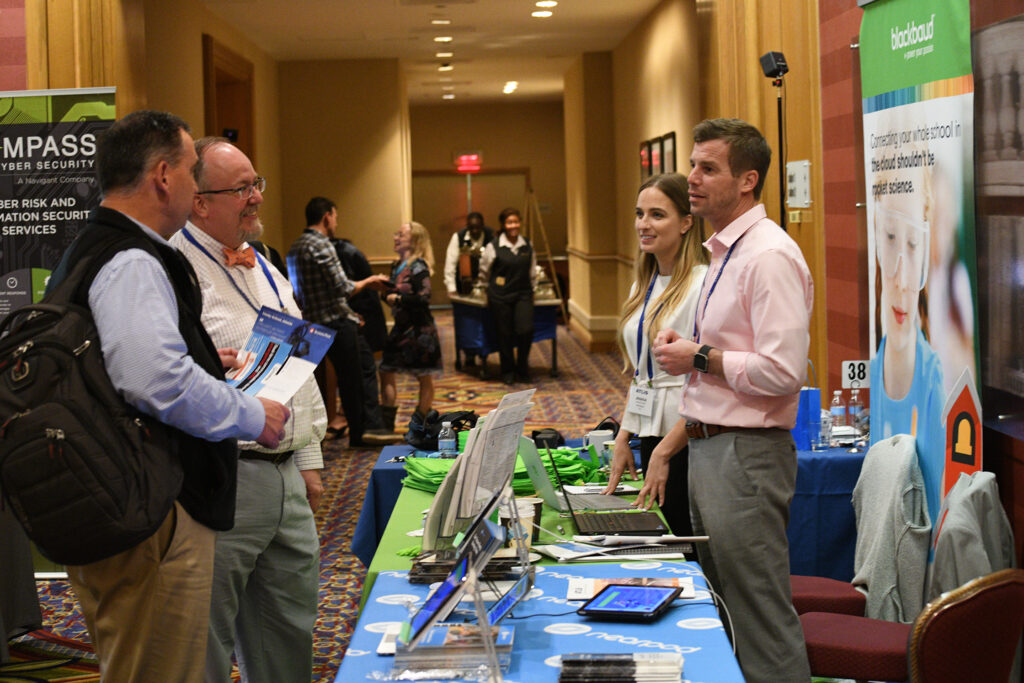
AA: You took a strong stance with sponsors in relation to your virtual conference last year. You made a point of promoting those sponsors that continued to support ATLIS while you removed any trace of sponsors who backed out from ATLIS materials. What was the reaction from members? From sponsors? Have you gotten any estranged sponsors back? Have any sponsors that “had your back” increased their support in the past 12 months?
CL: We had less than 30 days to scramble from an in-person conference to a virtual one in the early days of the pandemic. So yes, I think we took a strong stance in order to hold onto our revenue as the world around us was erupting in chaos. We basically said to our vendor partners, “if you’re willing to stick with us, we’re going to stand with you, and we won’t forget it.”
With very little exception, our vendor partners stayed on board and we got creative about the things we offered to make up to them the fact that we couldn’t offer in-person exhibits. We made a big deal of these loyal partners during our virtual conference. We said in plain language to our attendees, “These are the companies that value you, value our association, and support our industry. They could have bailed but they didn’t. Please support them however you can.” I believe they felt that effort to rally the troops around them.
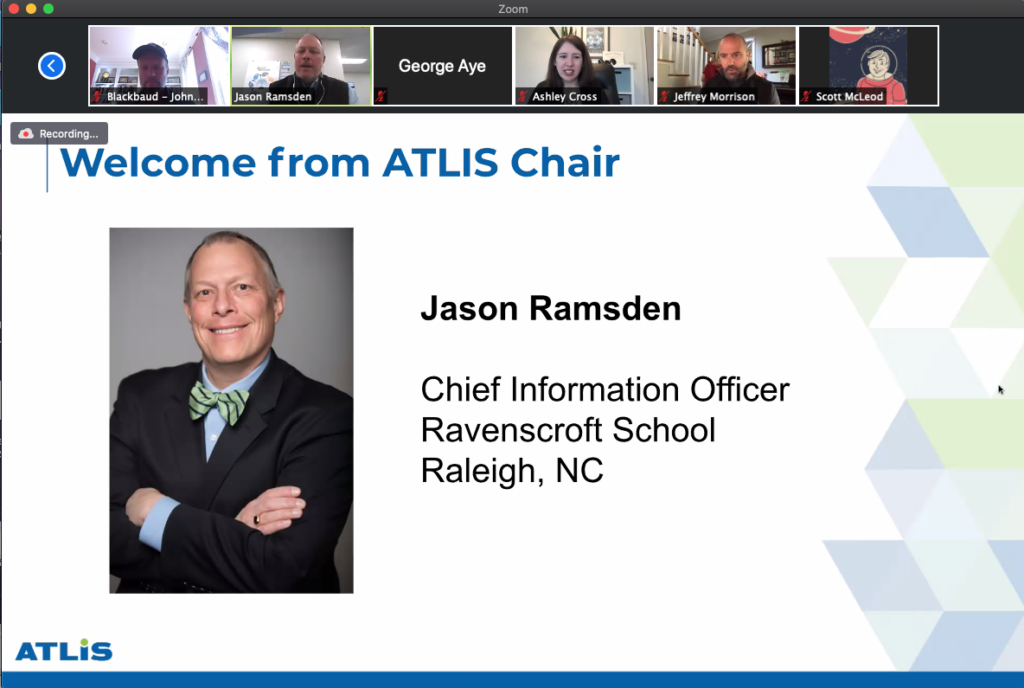
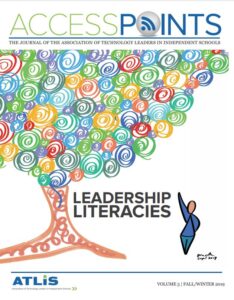
Then, when it came time to make a sponsorship plan for this year, my team and I knew that it was going to be more difficult to convince our vendor partners that a virtual exhibit booth was going to be a worthwhile investment. So, we came to the table with more unique solutions. For example, we are pouring a lot of time and money into redesigning our former academic-journal-style publication into a more traditional trade magazine and buying guide.
We’re showing our vendor partners that we’re willing to put big money and effort into something that they can leverage to get the word out. We may not win back all former sponsors, but I’m confident that the companies who like the direction ATLIS is headed will find in us a partnership that goes far beyond them writing an annual check.
AA: What do you hope the “new normal” of association work looks like?
CL: I hope some of my fellow association colleagues have learned that the next normal does not necessarily require all of their talent to be in the same building. ATLIS has always been a virtual association so when others were scrambling to figure out how to get the mail or a second signer on a check, ATLIS was focused on serving our members in a time of crisis.
I don’t think we have a true handle yet on how much of a setback this crisis will have long-term on employees, and on women and minorities in particular. I hope the next normal of association management is far more flexible than it was in the past. This forced flexibility has made associations more agile and I don’t see any reason to go back to a rigid organization chart. Good employees don’t need to sit in a cubicle to do powerful work for your members. The CEOs who understand and accept this are going to be the ones who attract and retain the best talent in this space—now more than ever before.
AA: In an Associations Now article, you state that “self-care is not an indulgence, it’s an investment.” What does self-care look like for you and your staff?
CL: In a word, boundaries. If you’re going to encourage staff to set appropriate boundaries, you can’t be emailing them at all hours of the day and night or talking nonstop about how stressed out you are. I think the culture of investing in sustainable self-care starts at the top leadership of an organization. I’m transparent about when I’m getting up to go for a walk or when I need to postpone a decision to give myself some dedicated mental breathing room. I don’t have to remind my team with empty pep talks to build sustainability breaks into their routines because they see me doing it and they know they have the permission to manage their worlds in ways that make sense for them.
AA: Based on your involvement with the Harmony Foundation, you seem to have a passion for singing! How, if at all, has your involvement with this organization – and with chorus – informed your work with associations?
CL: My dad is a barbershop quartet singer so it’s a community I grew up in from a young age. I’m an international quartet champion with Epic and I am a founding member of Bella Nova Chorus in Northern Virginia. I was the youngest elected International President of Harmony, Inc., an organization of women barbershop singers, and now I serve on the board of trustees for Harmony Foundation International, a philanthropic organization committed to enriching lives through singing.
My lifelong hobby has absolutely made me a better association executive. I’ve learned a lot about how to connect with different people and I’ve had tons of competition stage time to prepare me for the high-pressure moments that can pop up when you’re an association executive. Plus, I’ve loved the opportunity to step into the role of the elected leader. Having experience with both sides of that powerful relationship makes me a better association leader, without a doubt. I understand what my board members must juggle when they have a full-time job and I ask them to read a massive board book before a meeting.
It’s a commitment, and I believe my board knows that my experiences as a volunteer leader gives me a broader perspective of what they’re giving to the organization.
AA: What are you doing to ensure you continue to grow and develop as a leader?
CL: One of the blessings of the pandemic, in my opinion, is how it has forced us to invest intentionally in the relationships we want to maintain. For me, I’ve worked to cultivate several panels of advisors that I turn to when I’m struggling with a decision or brainstorming a solution. We may not speak every day, but it’s so refreshing to connect with peers who can both support and challenge you.
I am also on a personal journey of understanding issues of equity and social justice to make sure I’m an informed and prepared leader in the years to come. In both cases, I surround myself with people who think differently than I do and challenge me to see my world through a variety of lenses.
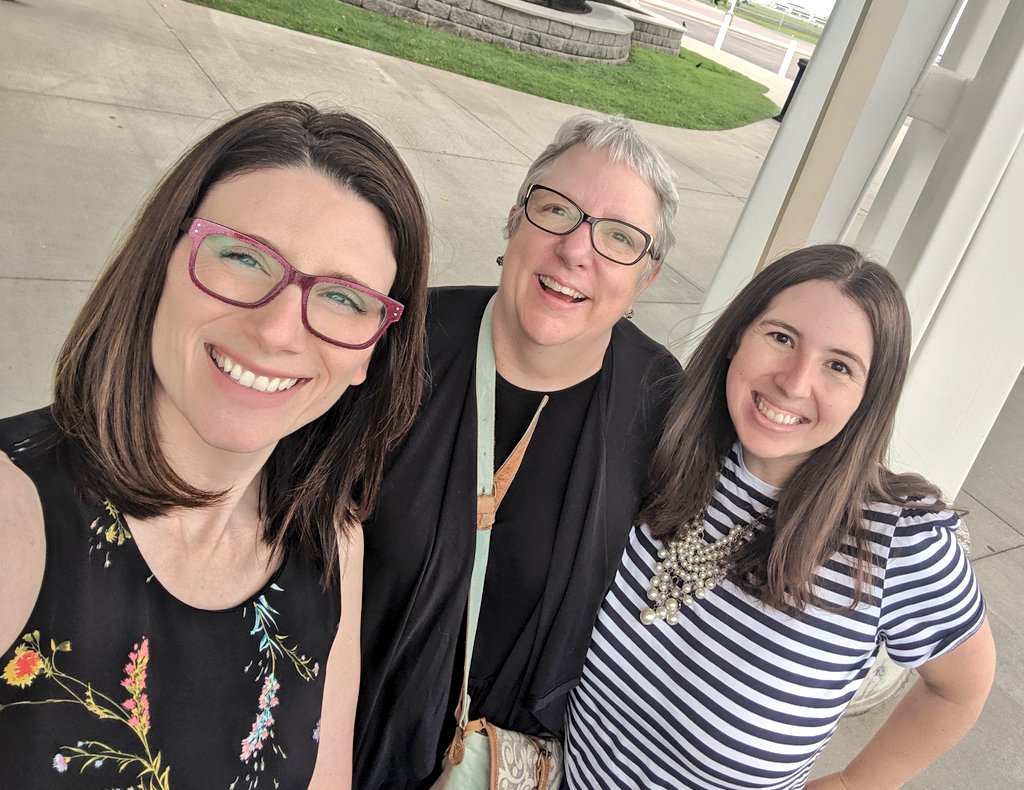
AA: In terms of your job, what keeps you up at night?
CL: I would be lying if I said the unpredictable macroeconomic and socioeconomic forces at play in our society aren’t a concern to me. So many tectonic plates have shifted in the last year that it’s sometimes hard to know if you can trust the ground you’re standing on.
But some of the most powerful work associations do is in the realm of helping our members adjust to these groundswells. So the issues to which I dedicate a lot of mental bandwidth are the ones I can affect within the independent school community: How can we provide better solutions to our members? How can the ATLIS team amplify our work as a small staff to shape the broader community of independent schools? How could meaningful partnerships and coalitions in our industry impact the changing nature of education?
These questions can seem big in the quiet of night, but I think associations have the ability to address big challenges, which is what makes this career so rewarding.
You can reach Christina Lewellen at [email protected] or @christinaATLIS.

